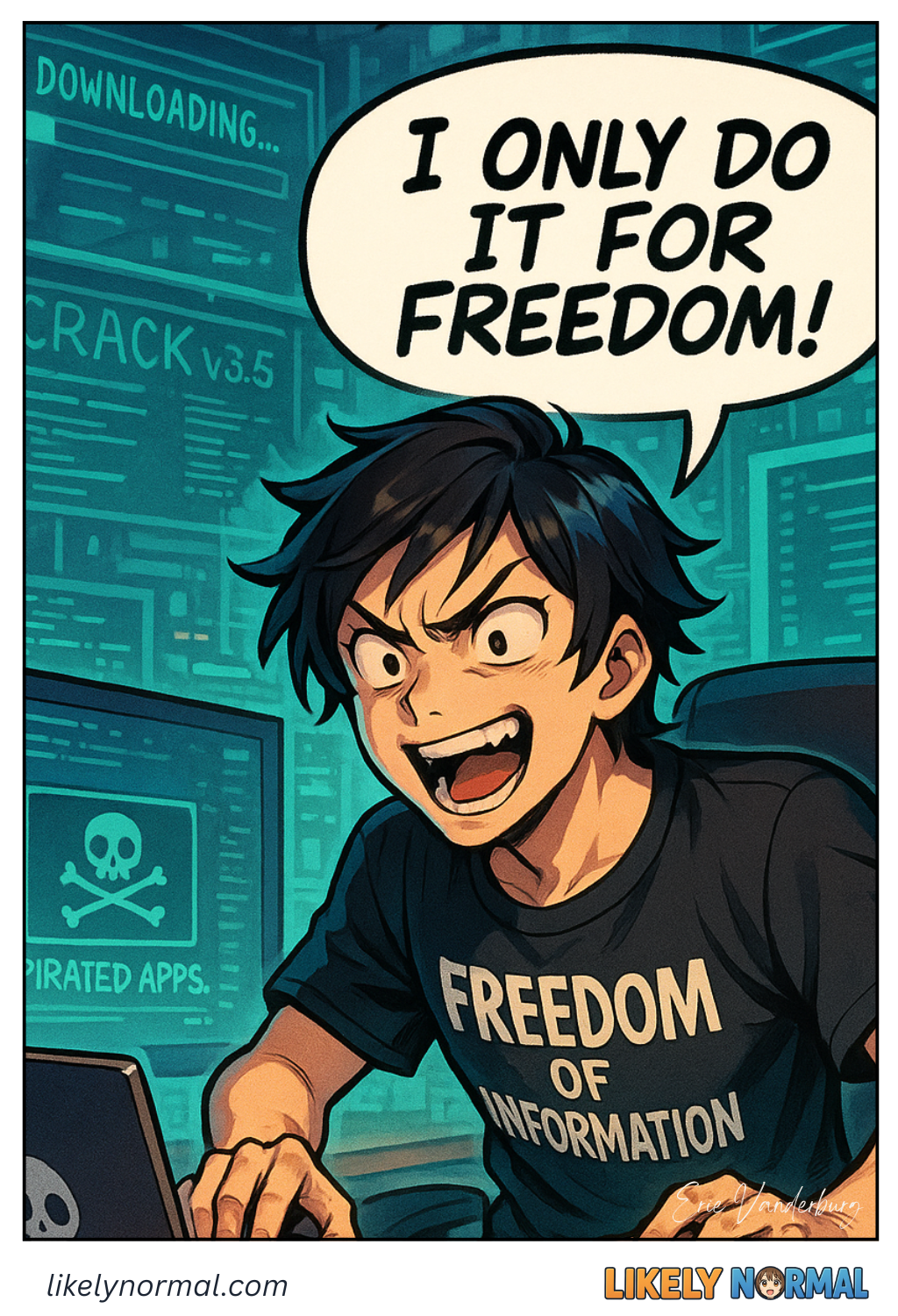Is it Freedom of Information or Piracy?
Some tech enthusiasts deliver impassioned speeches about digital liberation and the evils of intellectual property – right before asking if you’ve got a cracked version of Photoshop. These self-styled freedom fighters wrap their penny-pinching in revolutionary rhetoric, preaching about the tyranny of software licenses while conveniently ignoring that their entire philosophy collapses when applied to anything beyond the apps on their phone, illegal music, or computer software.
The cognitive dissonance is truly spectacular. These are individuals who will wax poetic about corporate greed while simultaneously dropping $100 on gaming microtransactions, who rail against Big Tech monopolies while refusing to use actual free alternatives like Linux or GIMP, and who consider themselves digital anarchists despite never having contributed a single line of code to any open-source project. Their entire ideology boils down to one simple principle: things they want should be free, and things they create should be paid.
Their justifications would be hilarious if they weren’t so transparent. The same person who claims that Adobe is too rich to deserve payment will angrily demand compensation if you borrow their charger without asking. The activist who insists all software should be free will somehow always find reasons why the free alternatives aren’t good enough (“GIMP doesn’t have that one brush I like!”). And nothing exposes their hypocrisy faster than asking why they don’t pirate from indie developers – suddenly, ethics make a miraculous appearance when the recipient might actually notice the missing income.
Of course, reality eventually crashes their ideological party. That liberated software often comes pre-packaged with malware, turning their machine into a botnet zombie. The lack of updates leaves gaping security holes. And when their pirated creative suite inevitably crashes during an important project, they’ll be the first to flood forums with complaints about greedy companies making unreliable products. The irony is thicker than a 1990s software manual.
At the end of the day, there’s nothing wrong with preferring free software – but let’s call this what it really is. It’s not some noble stand against corporate oppression; it’s just good old-fashioned thriftiness dressed up in revolutionary cosplay. True advocates of digital freedom support open-source projects, contribute to communal efforts, and pay for tools when they can afford them – they don’t just take whatever they want while pretending it’s a political statement.
So the next time someone starts lecturing you about information freedom while eyeing your paid software collection, feel free to nod along – then ask if they’d be willing to work for free in their own job. Watch how quickly the argument that information wants to be free is replaced by “my labor has value.” Some principles, it seems, only extend as far as the other person’s wallet.

Discussion ¬